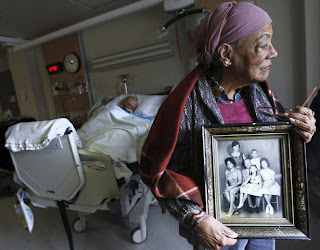On Thursday, 19-year old Florida Charlotte Regional Medical Center
 As if the case were not sad enough, the Herald-Tribune reports that "Lifelink, the group that handles organ donations in
As if the case were not sad enough, the Herald-Tribune reports that "Lifelink, the group that handles organ donations in 
















